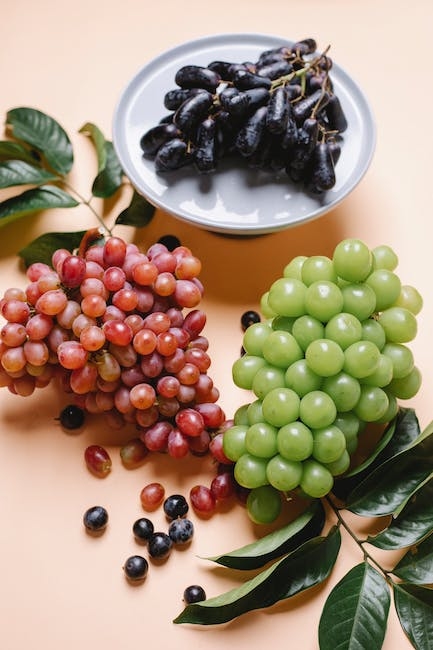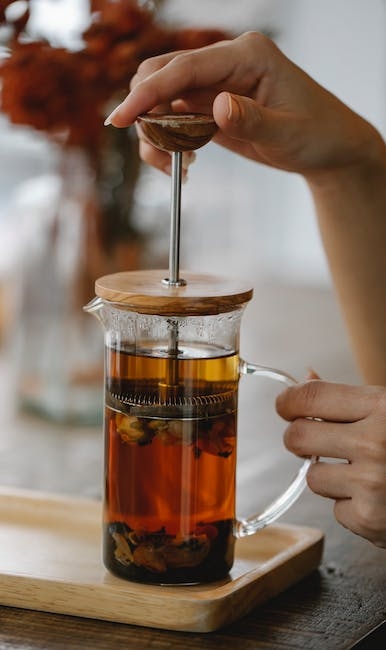Discovering the World of Black Tea: A Guide to Popular Varieties
Tea lovers around the world can attest that black tea is one of the most beloved types of tea. This rich and flavorful beverage is made from the leaves of the Camellia sinensis plant and is classified based on its place of origin, processing method, and flavor profile. In this blog post, we will take a closer look at some of the popular black tea varieties that are enjoyed by tea enthusiasts worldwide.
Assam Tea
Assam tea is grown in the Assam region of India and has a strong, malty flavor. It is often used in blends for making masala chai, a popular tea beverage in India and other parts of the world. Assam tea is also known for its high caffeine content, making it a great choice for those who need a boost of energy in the morning.
Darjeeling Tea
Darjeeling tea is grown in the Darjeeling district of West Bengal, India, and is often referred to as the “champagne of teas” due to its high quality. It has a floral and fruity flavor that is highly sought after by tea connoisseurs. Darjeeling tea is also known for its antioxidant properties and is said to have a calming effect on the body.
Ceylon Tea
Ceylon tea is grown in Sri Lanka and is known for its bold, full-bodied flavor. It is often used in blends for making iced tea, a popular beverage during the summer months. Ceylon tea is also rich in antioxidants and has been shown to improve heart health and lower cholesterol levels.
Keemun Tea
Keemun tea is grown in the Anhui province of China and has a smoky, earthy flavor. It is often used in blends for making English breakfast tea, a popular morning beverage in many parts of the world. Keemun tea is also said to have a relaxing effect on the body and mind.
Yunnan Tea
Yunnan tea is grown in the Yunnan province of China and has a sweet, earthy flavor. It is often used in blends for making pu-erh tea, a fermented tea that is highly prized in Chinese culture. Yunnan tea is also known for its health benefits, including its ability to boost the immune system and improve digestion.
Lapsang Souchong Tea
Lapsang Souchong tea is also grown in the Anhui province of China and has a smoky, pine flavor. It is often used in blends for making Russian caravan tea, a popular tea beverage in Russia and other parts of the world. Lapsang Souchong tea is also said to have a stimulating effect on the mind and body.
Conclusion
Each variety of black tea has its own unique flavor profile and characteristics that make it suitable for different purposes and preferences. Whether you prefer a strong and bold tea or a light and floral one, there is a black tea variety out there that is sure to satisfy your taste buds. So why not explore the world of black tea and discover your new favorite flavor today?
The Health Benefits of Black Tea: A Cup of Wellness
Black tea is a delicious and energizing beverage that has been enjoyed for centuries worldwide. But did you know that it also comes with a host of health benefits? Let’s explore some of the ways that black tea can help protect and improve your overall well-being.
Polyphenols and Antioxidants
One of the key components of black tea is polyphenols, a group of antioxidants that can help protect your cells from damage caused by free radicals. Free radicals are unstable molecules that can lead to chronic diseases such as cancer and heart disease. By consuming black tea regularly, you can help reduce your risk of these illnesses and promote healthier cells.
Heart Health
Studies have also shown that the polyphenols in black tea can improve blood vessel function, reducing the risk of heart disease and stroke. In addition, drinking black tea can lower levels of LDL (“bad”) cholesterol and raise levels of HDL (“good”) cholesterol, which can also lower the risk of heart disease.
Mental Alertness and Stress Reduction
Black tea contains caffeine, which can help improve mental alertness and focus. But it’s not just the caffeine that can help with mental clarity. The amino acid L-theanine in black tea has been shown to increase alpha-wave activity in the brain, which can help reduce feelings of stress and anxiety.
Antimicrobial Properties
Some studies have suggested that black tea may have antimicrobial properties, helping to fight off harmful bacteria in the body and potentially reducing the risk of infections. While more research is needed in this area, it’s exciting to think that a simple cup of black tea could have such powerful effects on our immune systems.
Anti-Inflammatory Effects
Black tea has also been shown to have anti-inflammatory effects, which could help reduce the risk of chronic diseases such as arthritis and certain types of cancer. By reducing inflammation in the body, black tea can help promote overall wellness and reduce the risk of long-term health issues.
Conclusion
From protecting cells to reducing the risk of heart disease and promoting mental clarity, black tea is truly a cup of wellness. So why not make it a regular part of your routine? Whether you enjoy it hot or iced, with milk and sugar or just a squeeze of lemon, black tea is a delicious and healthy way to stay hydrated and energized throughout the day.
The Art of Brewing the Perfect Cup of Black Tea
Tea is one of the oldest and most beloved beverages in the world. It is not only a refreshing drink but also a cultural experience that has been passed down for generations. Black tea, in particular, is a popular choice due to its rich flavor and bold taste. However, many people struggle to brew the perfect cup of black tea. In this blog post, we will guide you through the steps to make the perfect cup of black tea.

Step 1: Water Quality
Start with fresh, cold water. The quality of the water you use can affect the taste of your tea, so use filtered or spring water if possible. Avoid distilled water as it does not have the necessary minerals to enhance the tea’s flavor.
Step 2: Boiling Water
Bring the water to a rolling boil. For black tea, the ideal temperature is around 212F (100C). This temperature is perfect for releasing the full flavor of the tea leaves.
Step 3: Preparing the Teapot or Teacup
Warm up your teapot or teacup by rinsing it with hot water first. This will help keep your tea hot for longer.
Step 4: Measuring Tea Leaves
Measure out the right amount of tea leaves. Generally, you’ll want to use 1 teaspoon of tea leaves per cup of water, but this can vary depending on the type of tea and your personal taste.
Step 5: Using the Tea Infuser or Teapot
Place the tea leaves in a tea infuser, teapot, or tea bag. If using a tea infuser, be sure to leave enough space for the leaves to expand as they steep.
Step 6: Steeping the Tea
Pour the hot water over the tea leaves, making sure to cover them completely. Let steep for 3-5 minutes, or until the desired strength is reached. The longer the steeping time, the stronger the tea will be.
Step 7: Removing the Leaves
Remove the tea leaves or tea bag from the hot water. Leaving the leaves in for too long can result in a bitter taste.
Step 8: Customize Your Tea
Enjoy your perfect cup of black tea! You can add milk, sugar, honey, or lemon if desired. Customize your tea based on your preference and enjoy.
Additional Tips and Tricks
Here are some additional tips and tricks for brewing black tea
- If you’re making iced tea, double the amount of tea leaves you use and let it steep for the same amount of time. Then, dilute with cold water and serve over ice.
- Experiment with different brewing times and water temperatures to find your perfect cup of tea.
- To make a stronger cup of tea, use more tea leaves rather than steeping for a longer period of time.
- If you’re using loose leaf tea, be sure to store it in an airtight container away from light and moisture to maintain its freshness.
With these simple steps and tips, you can brew the perfect cup of black tea. Enjoy the rich flavors and bold taste that black tea has to offer.
Enhance Your Culinary Experience with Black Tea Pairings
Black tea is not just a beverage, it is a versatile ingredient that can enhance the flavor of various foods. The type of black tea you choose can make a big difference in how it pairs with food. In this blog post, we will explore the different types of black tea and the best ways to pair them with various dishes.
Light and Floral Black Teas
Light and floral black teas, such as Darjeeling and Ceylon, have a delicate flavor profile that pairs well with lighter foods. These teas pair well with salads, sandwiches, and seafood. They also complement dishes with subtle flavors, such as white fish, chicken, and vegetables. If you are looking for a refreshing and light pairing, then this is the perfect choice for you.
Bold and Robust Black Teas
On the other hand, bold and robust black teas, such as Assam and Yunnan, are better suited for heartier foods. These teas pair well with red meat, spicy dishes, and rich chocolate desserts. They can also stand up to strong flavors, such as blue cheese and smoked meats. If you are looking for a more intense and robust pairing, then this is the perfect choice for you.
Middle-Ground Black Teas
Middle-ground black teas, such as Keemun and English Breakfast, are versatile and can be paired with a wide range of foods. These teas pair well with breakfast items, pastries, and fruit desserts. They have a balanced flavor profile that is not too light or too bold. If you are looking for a tea that can pair well with almost anything, then this is the perfect choice for you.
Matching the Strength of the Tea with the Strength of the Dish
When pairing black tea with food, it’s important to consider the intensity of the flavors and how they complement or contrast with each other. A good rule of thumb is to match the strength of the tea with the strength of the dish, so that neither overpowers the other. This will help you create a harmonious and satisfying culinary experience.
Conclusion
Black tea is not just a beverage, it is a versatile ingredient that can enhance the flavor of various foods. Whether you prefer light and floral teas, bold and robust teas, or middle-ground teas, there is a perfect pairing for every dish. So, the next time you are preparing a meal, consider adding a cup of black tea to enhance the flavor and create a more satisfying culinary experience.


Leave a Reply